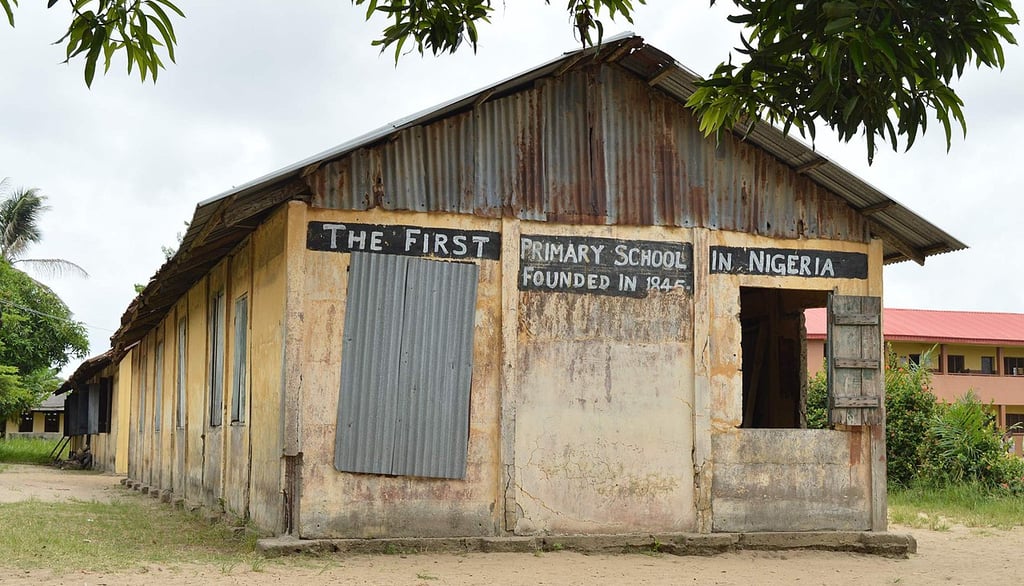Nigeria's Tribal Tirades on Facebook: How Bigotry Erodes Shared Progress
Discover how a simple Facebook post about Nigeria’s first primary school ignited a storm of tribal tensions, revealing deep-seated biases and highlighting the challenges to national unity and progress.
SOCIAL MEDIASOCIAL COMMENTARYGENERAL TOPICS


The Facebook Thread That Revealed Deep Divides
In a seemingly innocuous Facebook post, Iganna Lawa shared a picture of the first primary school in Nigeria, located in Badagry, a Yoruba region. The post highlighted the Yoruba people's early acceptance of Western education, noting that the school, established in 1843, marked a significant historical achievement. However, what followed was not a celebration of history but an eruption of tribal tensions that underscored the deep-seated bigotry and intolerance pervasive in Nigeria.
Responses Reflecting Deep-Rooted Biases
Adeyinka Johnson – an ostensible Yoruba (judging by the name), questioned Lawa’s claim, suggesting that the Benin Kingdom might have been the first to accept Western education. Subsequent comments quickly devolved into a battleground of tribal affiliations. A comment by Ayotunde Oguntoyinbo (another ostensible Yoruba, judging by the name) took a more aggressive tone, implying that the Yoruba, as early adopters of Western education, should not be under the control of the northern Fulanis. One Olawale Dauda countered, “The other tribe will not agree.” He was not specific about which one was “the other tribe.” Still, his comment provoked a corrective response from one Johnmark Ken Okekearu (whom I suspect is Igbo, going by the surname). He argued that the post merely stated a historical fact without implying superiority.
One Mariam Usman Muhammad charged that there were double standards in how different tribes celebrate their achievements. She noted that while Igbo people proudly proclaim "Igbo Amaka," (an expression of Igbo pride), similar expressions of pride from the Yoruba are often met with resentment. But beyond noting the apparent double standards, Muhammad was offended at the prospect of being perceived as a Fulani. She pointed out that she was half Yoruba; her father was from (or a) “Shua,” while her mother was Yoruba. In any case, Johnmark Ken Okekearu countered Mariam Usman Muhammad’s charge of double standards by listing instances where Yoruba people have shown intolerance towards Igbo cultural expressions, highlighting the cyclical nature of tribal hatred.
The importance of the primary school in question had been drowned by ethnic bickering.
Theoretical Perspectives: Social Identity Theory and Confirmation Bias
I believe that this phenomenon can be unpacked through the lenses of Social Identity Theory and Confirmation Bias.
Social Identity Theory posits that individuals derive part of their identity from their group memberships, leading to in-group favoritism and out-group discrimination. In the Nigerian context, individuals strongly identify with their tribal affiliations. This strong identification creates a perceived threat when another tribe's achievements are highlighted, leading to disparagement rather than praise.
Confirmation Bias further exacerbates this issue. Individuals are more likely to seek information that confirms their pre-existing beliefs and attitudes. For instance, people from one tribe may focus on negative aspects of another tribe's achievements to maintain their own sense of superiority. This bias prevents them from appreciating the merits of other tribes and learning from their successes, fostering a cycle of mutual distrust and resentment.
The Impact on National Unity
The tribal divisions illustrated in the Facebook thread reflect a broader issue hindering national unity and shared progress in Nigeria. Instead of learning from each other's achievements, Nigerians often find themselves trapped in a cycle of mutual distrust and resentment. This dynamic robs the nation of valuable lessons that could be learned from the successes of different communities, stunting collective progress.
How Social Media Fuels and Exposes Deep Divides in Nigeria
I will not delve into how such historical structures, regardless of their locations, can become sources of national or regional income through tourism, nor will I discuss the lessons architects, engineers, and school planners could learn from that building. We’ll save those areas for another day.
That said, in a world where social media shapes public discourse, a seemingly innocent Facebook post can reveal deep societal issues. When Iganna Lawa shared the picture of Nigeria’s first primary school in Badagry, he intended to celebrate a historical achievement, albeit of Yorubas. Then, his post ignited a storm of tribal tensions, laying bare the deep-seated bigotry and intolerance that hinder Nigeria’s unity.
Comments quickly spiraled into a battleground of tribal affiliations, showcasing how social media can amplify biases and fuel conflicts. This phenomenon can be understood through Social Identity Theory, which explains how group memberships foster in-group favoritism and out-group discrimination, and Confirmation Bias, where individuals seek information that reinforces their pre-existing beliefs.
The Facebook discussion thread serves as a microcosm of the broader issues of tribal bigotry and intolerance in Nigeria. This inability to celebrate each other’s achievements or appreciate national treasures undermines collective progress and reinforces divisive attitudes. However, by understanding the psychological underpinnings of these behaviors through Social Identity Theory and Confirmation Bias, there is hope for fostering a more inclusive and united Nigeria.
By addressing and overcoming these biases, Nigeria can pave the way for a future where achievements are celebrated regardless of tribal affiliations, promoting national unity and progress. Through understanding and addressing these biases, there is hope for a more cohesive and progressive society.
COMMENTS: Comments are disabled for this post.



